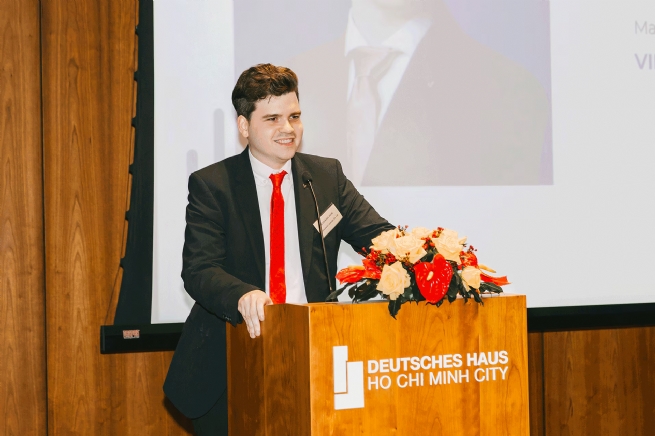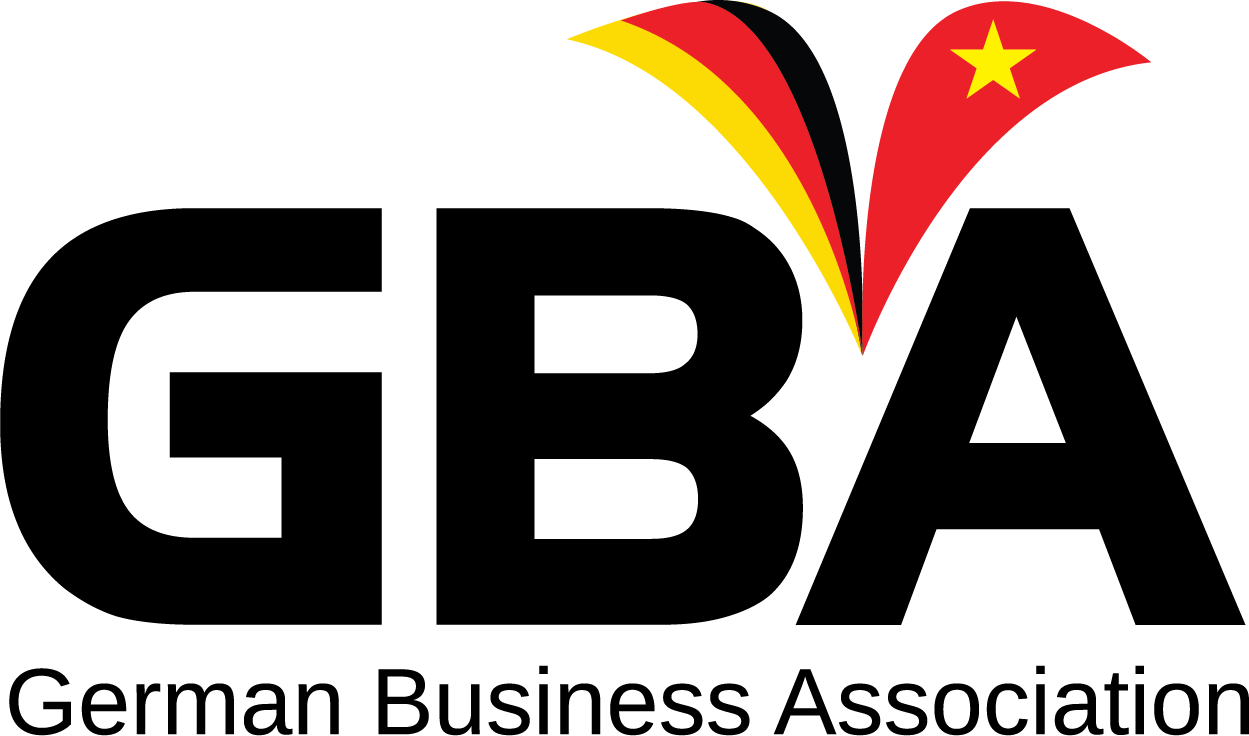On the occasion of the 50th anniversary of Vietnam–Germany diplomatic relations and the 30th anniversary of the German Business Association (GBA), Vietnam Business Forum conducted an interview with Mr. Alexander Ziehe, Chairman of GBA. In this interview, he reflects on the three-decade journey of bilateral economic cooperation, shares perspectives on opportunities and challenges in the Vietnamese market, and outlines the association’s development orientation for the years ahead.
Explore the full interview (in Vietnamese) here>>> and below is the English script.

On the occasion of 50 years of Vietnam-Germany diplomatic relations and 30 years since GBA was founded, how would you assess the development of bilateral business cooperation and GBA’s role over the past three decades?
Over the past 30 years, GBA has been a consistent and reliable bridge between the German and Vietnamese business communities. As we mark this milestone, we are proud of how German-Vietnamese economic ties have matured with Germany being Vietnam’s largest trading partner in the EU, and Vietnam holding a prominent position as Germany’s top partner in ASEAN.
GBA has actively supported German businesses not only in entering the Vietnamese market but also in navigating complex policy frameworks, establishing strong partnerships, and fostering a culture of innovation and sustainability. Today, with over 400 members, we are one of the largest and most active foreign business associations in Vietnam.
What is GBA’s current assessment of Vietnam’s investment and business environment for German companies? Which sectors are currently attracting the most interest?
Vietnam remains a highly attractive destination for German investors. According to the Spring 2025 AHK World Business Outlook, 80% of German companies in Vietnam rated their current business situation as good or satisfactory. Furthermore, 38% plan to increase their investment, and 43% expect to grow their workforce in 2025.
We observe strong interest in renewable energy, high-tech manufacturing, automation, and vocational training. With the EVFTA and Vietnam’s improving infrastructure, many German companies see the country as a strategic base for regional operations. Vietnam offers a compelling mix of economic dynamism, policy reform, and geopolitical relevance.
What are the main challenges that German companies currently face when operating in Vietnam?
While the outlook is positive, we must acknowledge several persistent barriers: Regulatory inconsistencies and overlapping legal provisions that create uncertainty; Cumbersome administrative procedures and prolonged customs clearance; A shortage of skilled labor in manufacturing and technical fields; Unclear guidelines on localization and investment licensing; External shocks such as tariff changes from global partners, notably the U.S.
We continue to advocate for greater transparency, simplification, and consistency to ensure a more predictable and enabling business environment.
What lessons can be drawn from successful German companies operating in Vietnam, and what would be your advice to new investors?
German companies that have succeeded in Vietnam share common traits: long-term commitment, strong local engagement, and an emphasis on quality and sustainability. Firms like Ziehl-Abegg, Kärcher, and Südwolle Group have expanded significantly in recent years, underscoring the viability of the Vietnamese market.
My advice to new investors is to take a long-term view, understand the regulatory landscape, and work closely with local partners. Engaging with platforms like the GBA can also provide critical insights, advocacy support, and community access.
What trends do you foresee for Vietnam-Germany cooperation in the future, especially in innovation, renewable energy, high-tech manufacturing, and digital transformation?
We are entering a new chapter in the bilateral relationship. Future cooperation will likely center around innovation, green growth, and digitalization. German businesses are already contributing to Vietnam’s sustainability goals through investments in clean energy, Industry 4.0, and circular economy models.
At the same time, Germany’s dual vocational training model is being implemented in Vietnam to help upskill the workforce – an essential element for the country’s continued competitiveness.
What are GBA’s priorities over the next five years to strengthen its influence and support the Vietnamese-German business community?
Looking ahead, GBA will focus on: Deepening public-private dialogue to address policy and operational challenges; Expanding our reach to provinces beyond Hanoi and Ho Chi Minh City; Promoting ESG and digital transformation among our members; Organizing high-impact events such as the GBA Business Awards, German Ball, and Oktoberfest to connect, recognize, and celebrate the community.
We are proud of our journey, and as we look toward the future, we remain committed to supporting a robust, forward-looking German-Vietnamese partnership grounded in trust, innovation, and shared success
